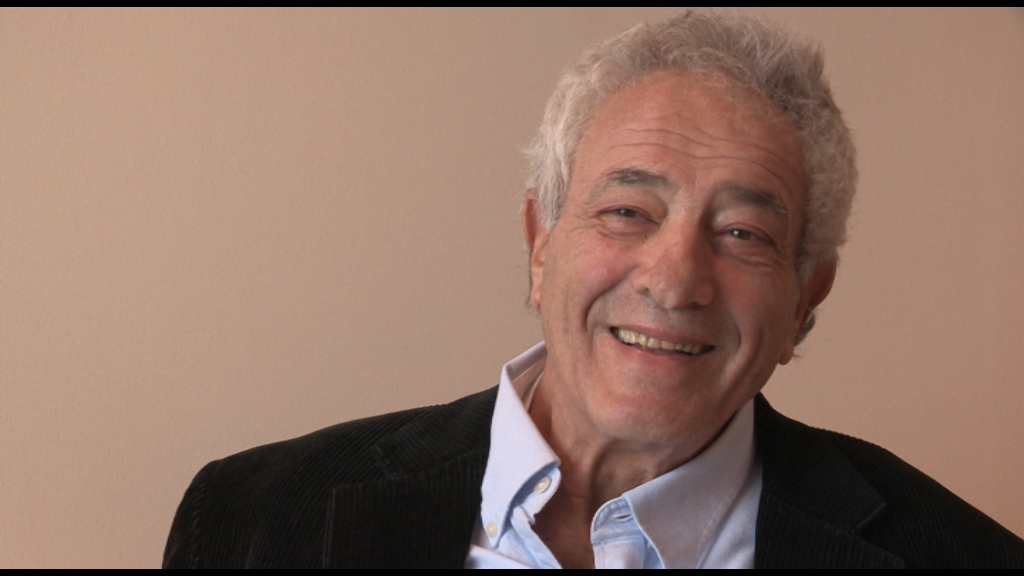NEXT STORY

Moving back to America
RELATED STORIES

NEXT STORY

Moving back to America
RELATED STORIES


|
Views | Duration | |
|---|---|---|---|
| 61. 'I have met the enemy and they is us' | 28 | 03:52 | |
| 62. Penguin Books come to America | 18 | 03:00 | |
| 63. Penguin Books and the American mass market | 15 | 04:15 | |
| 64. Moving back to America | 19 | 05:44 | |
| 65. Proud to have saved Penguin Books | 23 | 04:42 | |
| 66. A fondness for Britain | 18 | 03:26 | |
| 67. Politics at Penguin Books | 55 | 07:47 | |
| 68. Tackling Penguin's notion of conformity | 27 | 01:40 | |
| 69. Consolidating Penguin Books | 25 | 07:31 | |
| 70. Of no fixed abode | 22 | 03:21 |


And Penguin always, in the UK, had a kind of central European aspect to its Britishness, which I don't think most British people knew about. But the design of Penguin books was that of a Czech designer, and various people on the… in the directorate at Penguin were central Europeans. So that... it was not so crazy as all that. The New American Library had been started by a kind of faux-Englishman, Victor Weybright, who was not English at all, but he was an American who dressed like a Brit. I rarely saw him out of tweeds and his English was very stilted. To an American, I mean. And a European, Kurt Enoch from Hamburg, Germany. Those were the two principals of New American Library. It had had, before that an involvement, a very serious corporate involvement, with Ian Ballantine, who was partly a Scot and, I think, partly Jewish. There was some connection with his… in his family, with Emma Goldman, the famous social iconoclast fighter for women's rights and socialism and so on. He was partly a Scot. His father, Teddy, acted on the British stage. And so, New American Library, which I bought for Penguin, actually was a perfect fit for Penguin and it did, in a publishing sense, what Penguin could not do. It was a mass market line. Penguin, in America was what we could call there, a trade paperback publisher, which was what the British probably called a midway edition at some level. Not quite mass, not quite hardback, or not a hardback at all, but occupying a book shop shelf and sensibility.
So that was... So Penguin, by our having bought New American Library, was now a full-service publisher. It could publish an author, it could exploit the copyright in hardback, in trade paperback through Penguin, or in the mass market through New American Library, also known as Signet. The corporate name was New American Library but the mass market imprint was Signet. And Pearson, when I came to present the opportunity of buying New American Library to them, said they would only permit me to buy the company, which I told them was essential to their dream of being important in America, if I went there myself to integrate it. And I was not unhappy with that idea, but I think it was a mistake.
Peter Mayer (1936-2018) was an American independent publisher who was president of The Overlook Press/Peter Mayer Publishers, Inc, a New York-based publishing company he founded with his father in 1971. At the time of Overlook's founding, Mayer was head of Avon Books, a large New York-based paperback publisher. There, he successfully launched the trade paperback as a viable alternative to mass market and hardcover formats. From 1978 to 1996 he was CEO of Penguin Books, where he introduced a flexible style in editorial, marketing, and production. More recently, Mayer had financially revived both Ardis, a publisher of Russian literature in English, and Duckworth, an independent publishing house in the UK.
Title: Penguin Books and the American mass market
Listeners: Christopher Sykes
Christopher Sykes is an independent documentary producer who has made a number of films about science and scientists for BBC TV, Channel Four, and PBS.
Tags: Penguin Books, America, New American Library
Duration: 4 minutes, 15 seconds
Date story recorded: September 2014-January 2015
Date story went live: 12 November 2015